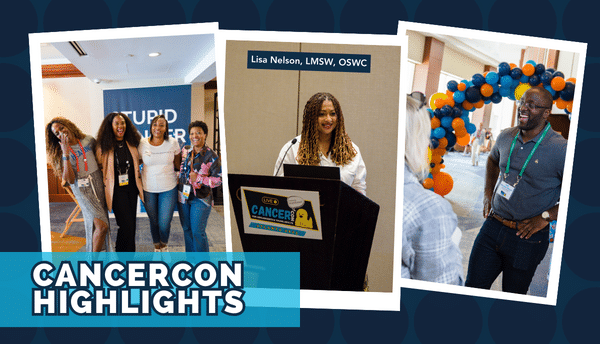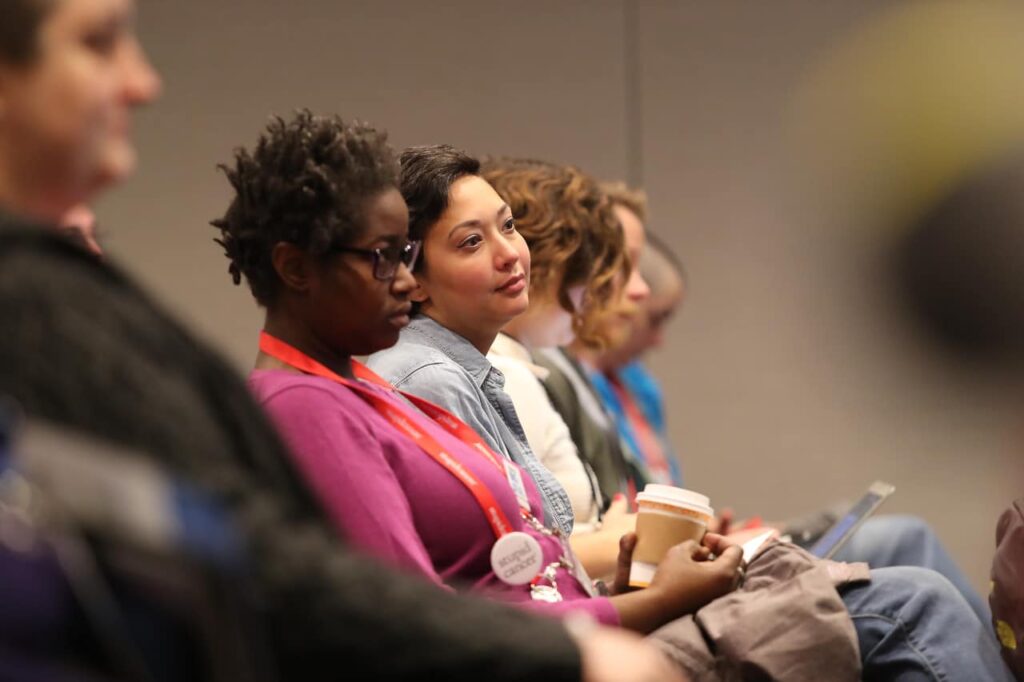Health Equity Initiative
As we move into 2024, we’re excited to continue the work that we started with the Health Disparities Town Hall under the umbrella of our Health Equity Initiative, which will be an ongoing, organization-wide effort to better support the needs of marginalized AYAs.
Stupid Cancer’s Health Disparities Town Hall was a 3-year initiative with the goal of hearing directly from young cancer patients from historically marginalized groups about their experiences during their diagnosis, treatment, and/or support and to understand their stories. In the first two years, we held community forums, focus groups, and working sessions to identify key themes and problems for AYA patients in the BIPOC, LGBTQ+, and Disabled community as they navigate medical care, and devise solutions that Stupid Cancer could enact. In Year 3, we worked behind the scenes to implement these community-derived projects, and we are excited to share some updates! (See below for more.)
1.TRANSITION: Non-Profit Professionals
PROBLEM: AYA cancer nonprofits serve different age ranges, which leads to confusion and isolation among AYAs when seeking appropriate resources.
OUR PROJECT: Reintroducing our new and improved resource guide! This page has been updated to display age ranges served by AYA Cancer Collaborative organizations and other institutions to help AYAs better access appropriate resources. CHECK IT OUT HERE!
2. REPRESENTATION: Healthcare Providers
PROBLEM: Some healthcare providers from historically marginalized communities work in psychologically unsafe environments and experience bias and microaggressions which can impact their ability to serve patients.
OUR PROJECT: At CancerCon Live this year, we hosted the “BIPOC Collective Space: Navigating Disparities in Cancer Care” session. Led by Lisa Nelson, LMSW, OSWC; this session provided a safe space for healthcare providers from historically marginalized communities to connect, identify common barriers, and workshop solutions for addressing bias and microaggressions experienced in the workplace.

3. PERCEPTION: Patients & Caregivers
PROBLEM: Provider misperceptions and assumptions about patients and caregivers can lead to delayed diagnoses, and young patients often do not have the communication tools to advocate for themselves.
OUR PROJECT: Working with AYA advisors, we’ve developed scripts to role-play self advocacy best practices for young patients. Keep an eye out on our social channels in early 2024 to see the first of these videos!
We’re looking for volunteers to help create more videos, especially to highlight the experiences of disabled patients facing medical biases. If you are interested please reach out to programs@stupidcancer.org.
4. TRANSITION: Industry Professionals
PROBLEM: Medical and corporate jargon used in patient-facing literature can lead to confusion among AYA patients & survivors when seeking medication, clinical trials, & insurance and lead to distrust towards industry.
OUR PROJECT: Based on community input, our staff has begun developing a medical jargon glossary we’re calling “The ABCs of AYA.” We’ll be releasing the first batch of treatment-related terms on our website in early 2024. The goal of this ongoing project is to help ease confusion among AYA patients and survivors when seeking treatment. CHECK IT OUT HERE!
Which terms have been confusing to you?
Let us know at programs@stupidcancer.org so we can define it in a future edition of our glossary.

